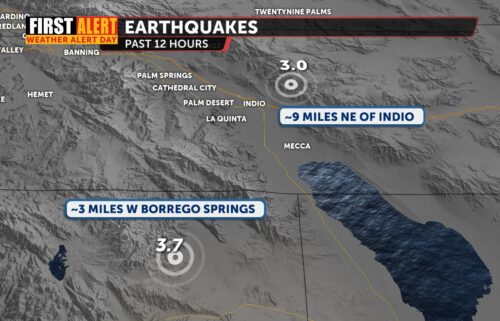Creating Your Emergency Plan
Sponsored Content

CHAPTER 1: HOW TO START THE CONVERSATION
Now that you’ve covered the basics by Building Your Emergency Kit, let’s help you create your emergency plan. Emergency planning and preparation amplify your emergency kit(s) by considering what happens when we set our physical surroundings up for safety and pool resources to support others.
Our biggest risk as a community is being hit by an emergency or disaster unprepared and without a plan, with disorganized people desperate for resources and safety. What’s proven to help is talking about emergencies before they happen, encouraging each other to prepare, and organizing with our communities.
Remember, community is whatever you define it as - you and one other person, a household, a group of friends, nextdoor neighbors on your block or in your apartment complex, and anything in between or beyond. Chances of thriving increase innumerably when we prepare with and give and receive support from others. We built this guide to help you get started.
How To Start The Conversation
Discussing emergency planning can be difficult - it’s scary and uncomfortable to acknowledge that disasters (and their aftermath) can and do happen. Yet, the first step to preparation is communication. Unfortunately, many people associate emergency preparation with the extreme - paranoid doomsdayers. In reality, emergency planning is for everyone and normalizing these conversations can and will help save lives.
In the same way you keep a rainy day fund or keep a spare tire in your car, these conversations are not only necessary, they’re smart. This chapter gives you tips on starting the conversation and encouraging those you love to join in.
Initiating The Conversation
It sounds easy, but “Hey, can we talk about how we’d handle an emergency?” can be a scary sentence for some to say or hear. Here are some ideas for getting started.
Talking to…
Family
The simplest route is usually the best route. If you’re trying to get family on board, ask them what they plan to do in an emergency. If they don’t have a plan, suggest choosing a time to create a plan together. Make it fun by chatting over a bottle of wine or turning it into a pizza night.
ChildrenFriends, Roommates, or Acquaintances
These conversations are just as crucial for those who are living alone or with housemates to create a disaster plan. Talk to your friends and housemates about planning together. It could be as easy as asking, “Have you thought about what you’d do if an earthquake hit?” or “Do you have an emergency kit?” Let them know you’ve been thinking about it recently and like the idea of making a plan together. Whether it’s with just one friend, a group of friends, or housemates, collaboration and coordination will make navigating an emergency far more successful.
Employers / Schools
Familiarize yourself with your workplace emergency and evacuation plans, and understand what resources are provided. If you have children, you’ll want to be familiar with their school’s plans as well.
Common Objections
Perhaps you’ve already tried discussing disaster planning with the people you care about, but were met with resistance. For some, even thinking about disasters can trigger anxiety, while others think the topic is a waste of time. It’s important to meet people where they are. Here’s a list of common objections to emergency preparation, with notes to help understand where they’re coming from and how to move around them.
“We will be fine.”
This dismissive attitude can be hard to work with, but it is very common. It’s so common that it has a name: the normalcy bias. This bias causes people to underestimate both the likelihood and the severity of a disaster. The only surefire way to “be fine” in an emergency is to prepare.
In this case, it can be helpful to let the person or people know that you trust you’ll be fine too, but that still want to be prepared - the same as the rainy day fund or spare tire examples. It’s smart and reasonable preparation, just in case.
“The odds of a disaster happening are low.”
Whether the odds are low or high, a disaster is always a possibility. Again, using examples of rainy day funds or spare tires as very smart ways to prepare for an unlikely event can help others see emergency preparation differently.
“I don’t want to jinx anything.”
Talking about natural disasters will not manifest them, and most rational humans know that. What this objection is really saying is, “I’m afraid to imagine myself in a natural disaster. It’s scary and I’d rather not think about.”
Unfortunately, avoidance only increases the chance of being taken by surprise and decreases the chance of thriving in an emergency. It’s normal to feel scared of the changes that would come with a natural disaster, and we encourage acknowledging that in your conversation. Then, move forward to acknowledging that having conversations and preparing is the only way to transmute that fear into confidence.
“We don’t have time.”
Luckily, contrary to popular belief, emergency preparation actually takes very little time. It can be as easy as ordering an emergency kit and having a conversation about planning. Take an hour or two to prioritize preparation, and then keep moving forward with day-to-day life as usual. What this objection is really saying is, “I don’t prioritize emergency planning.” We all have the same amount of time in a given day, and what we do with it shows what we prioritize. We have the time, but sometimes it takes adjusting priorities.
Our own objections
Self-sabotage is real, friends. It’s very easy to talk ourselves out of something that’s good for us, particularly if it involves doing something uncomfortable. Think about why you’re holding back on initiating these conversations.
Are you worried that you may be considered paranoid? Maybe you haven’t done a lot of research and don’t want to come across as uneducated? Whatever the reasons, we encourage you to acknowledge them, write them down if it’s helpful. Then, own them.
Our insecurities or vulnerabilities can be a great starting point. “I was worried about bringing this up because I didn’t want you think I’m paranoid, but I think it’s important. Do you have time to talk with me about emergency and disaster planning?” Or, “I haven’t done a lot of research on this yet, but I’ve been feeling vulnerable about what I’d do if an earthquake hit. Are you open to doing some research with me and talking about how we can prepare together?”
How would you respond to those statements from a friend or family member? If you’re like us, you’d probably want to help. Your family and friends care about you, and their desire to help you is a great reason for them to start thinking about preparedness too. Work through a few moments of discomfort to get the ball rolling - it will be worth it, and your bravery could help save lives.
You’re not paranoid and you don’t need to be an expert to have a valid concern; government agencies from FEMA to the CDC recommend having these conversations with the people you care about, no matter where you live or what your situation is.
The fact is that disasters do happen, the same as flat tires and unexpected accidents. It doesn’t have to be a fear-based conversation. Normalizing emergency preparation alongside all the other smart ways we prepare ourselves for the unexpected is key. Disasters can and do happen every day, so preparing for them should just as common.
Don’t let objections or self-sabotage hold you back. Encourage yourself and the people you care for to examine what’s holding you back. Remind yourself and them that preparing for disasters leads to two things: preparedness and peace of mind.
Use Redfora's Building Your Emergency Kit Guide, along with our Emergency Planning Worksheet and Contact Cards, to help facilitate the conversation and start making your plan today. Click here to read the rest of our guide to Creating Your Emergency Plan.



